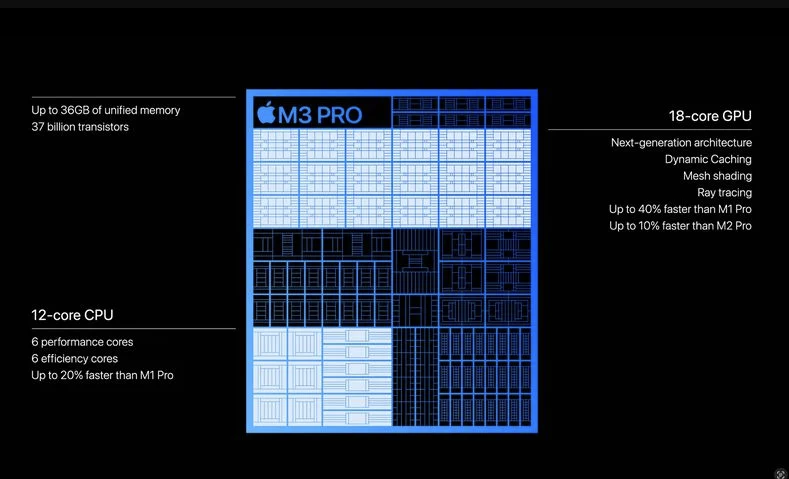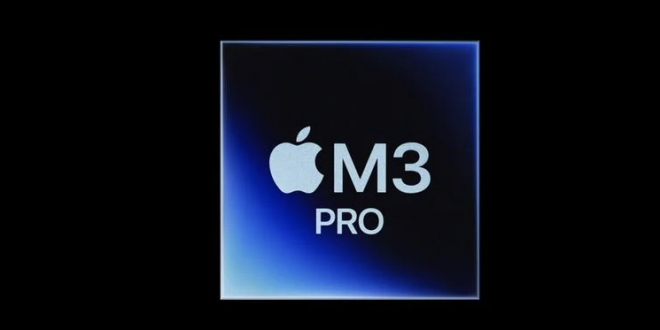The new 14-inch and 16-inch MacBook Pro’s M3 Pro chip has 25% less memory bandwidth than the M1 Pro and M2 Pro chips in equivalent models from the two previous generations.
Apple’s fastest and most power-efficient chip yet, the M3 series, uses 3-nanometer technology and a new GPU architecture. Apple claims that the 14-inch and 16-inch MacBook Pro with M3 Pro chips are 40% faster than the M1 Pro model.
Apple’s hardware specifications state that the M3 Pro SoC has 150GB/s memory bandwidth, down from 200GB/s on the M1 Pro and M2 Pro. Apple claims the M3 Max can support “up to 400GB/s,” but the M3 Max with a 14-core CPU and 30-core GPU has only 300GB/s of memory bandwidth, unlike the M2 Max with a 12-core CPU and 30-core GPU, which has 400GB/s of bandwidth like its more powerful counterpart (12-core CPU and 38-core GPU).
Apple also changed the core ratios of the M3 Pro chip compared to its predecessor. Compared to the 12-core M2 Pro, the M3 Pro with a 12-core CPU has 6 performance cores, 6 efficiency cores, and 18 GPU cores.
The M3 chip’s 16-core Neural Engine has the same number of cores as Apple’s 3nm-based A17 Pro chip in the iPhone 15 Pro series in September, but it has a lower maximum throughput in trillions of operations per second.
Apple claims the M3 Neural Engine can achieve 18 TOPS and the A17 Pro 35 TOPS. It’s possible that the iPhone 15 Pro needs a faster neural engine for computational photography and Face ID, while the M3 can use its GPU cores for machine learning.
It’s unclear how these changes affect M3 performance compared to Apple’s equivalent precursor chips in various usage scenarios, especially since the latest processors use dynamic caching memory allocation technology to use only the memory needed for each task.

Apple repeatedly compares the new M3 Pro and M3 Max chips to the M1 Pro and M1 Max, rather than the more recent M2 variants, which show smaller performance gains. This opaqueness is not helped by this. We hope to learn more when the first comprehensive third-party benchmarks are available.
Now available to order, the new MacBook Pro models will arrive in stores on Tuesday, November 7. See our MacBook Pro announcement coverage for details.
 Tech Gadget Central Latest Tech News and Reviews
Tech Gadget Central Latest Tech News and Reviews




